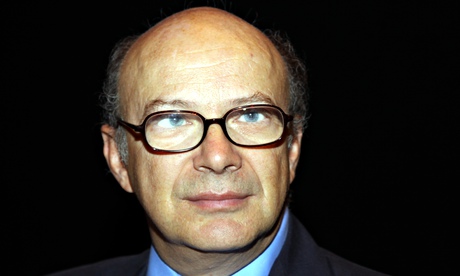
"This is an exceptionally involving and horrifying book," wrote Sam Leith in the Spectator about 1946 by Victor Sebestyen. The author "isn't that much of a stylist, but heaven knows he can tell a story". Among the "grindingly awful" details about the dark postwar era is that in "Hungary, Poland and Slovakia, far more Jews were killed in the 12 months after the end of the war than in the 12 years before 1939. The most senior figures in the Catholic church flatly refused to condemn antisemitism. The right of Holocaust survivors, all over Eastern Europe, to return to their own homes was resisted." According to Max Hastings in the Sunday Times "Sebesteyn's panorama is an admirable piece of journalism, lacking only the reflective element that would translate it into history … To read of 1946 is to cherish gratitude and relief that we live in 2014." But in the Times, Roger Boyes, the paper's Berlin correspondent, was less polite: "the reader is served up lumpy pottage" admittedly with many "sexual tidbits". It is "difficult to find anything in the book that really justifies its ambitious subtitle, "The Making of the Modern World". To do that Sebestyen would have had to engage somehow with the world of ideas."
Colm Tóibín's latest novel, Nora Webster, "does have a big picture", argued Melanie McDonagh in the Evening Standard – that of "how a widow reconstructs herself after losing a husband". But "it's made up of small brushstrokes … at the end you have the satisfying sense that this is a woman who has made sense of the world by living on her own terms … this is a novel in which nothing much happens, without much humour; just a woman's life, nicely observed. And, you know, it works." She certainly preferred it to The Testament of Mary, Tóibín's "take on the life of the Virgin", which she startlingly described as "bizarrely blasphemous". In the FT, Christopher Tayler admired Tóibín's "unravelling" of "the figure of the Irish mother with a characteristic blend of sympathy, ambivalence, historical clear-sightedness and formal restraint." Janet Maslin in the New York Times joined the ranks of enthusiastic reviewers: "much of the book's deceptively quiet drama has to do with Nora's gradual, subtle reawakening … The last parts … are heartrendingly transcendent … Tóibín's prose often has an elegant, visceral simplicity".
"She electrified the world with an impassioned speech about the scourge of sexism infecting Australian politics, attracting 2.5m views on YouTube. But anyone expecting Julia Gillard's memoir of her three years as Australia's first female prime minister to fully deconstruct the causes and prevalence of the toxic gender politics she says helped destroy her premiership will be disappointed," reported Jamie Smyth in the FT about My Story: "What Gillard provides in spades is a detailed, yet surprisingly lively, first‑hand account of her government" and "a unique insight into the good and bad sides of Australian politics today". But for Rosamund Urwin in the Evening Standard, the "best parts of the book are on gender. In fact, they should be required reading for anyone who says feminism's work is done." As a woman, her "appearance is perpetually scrutinised" as a male politician's wouldn't be, and, childless, "she is chided as 'deliberately barren'". Urwin concluded: "I hope Gillard is contemplating book number two: a version of Sheryl Sandberg's Lean In for women in politics."

